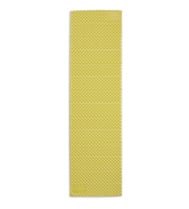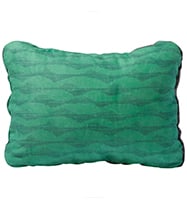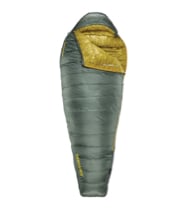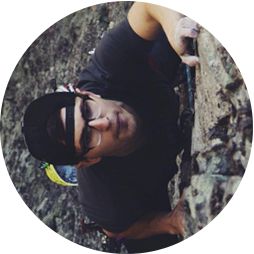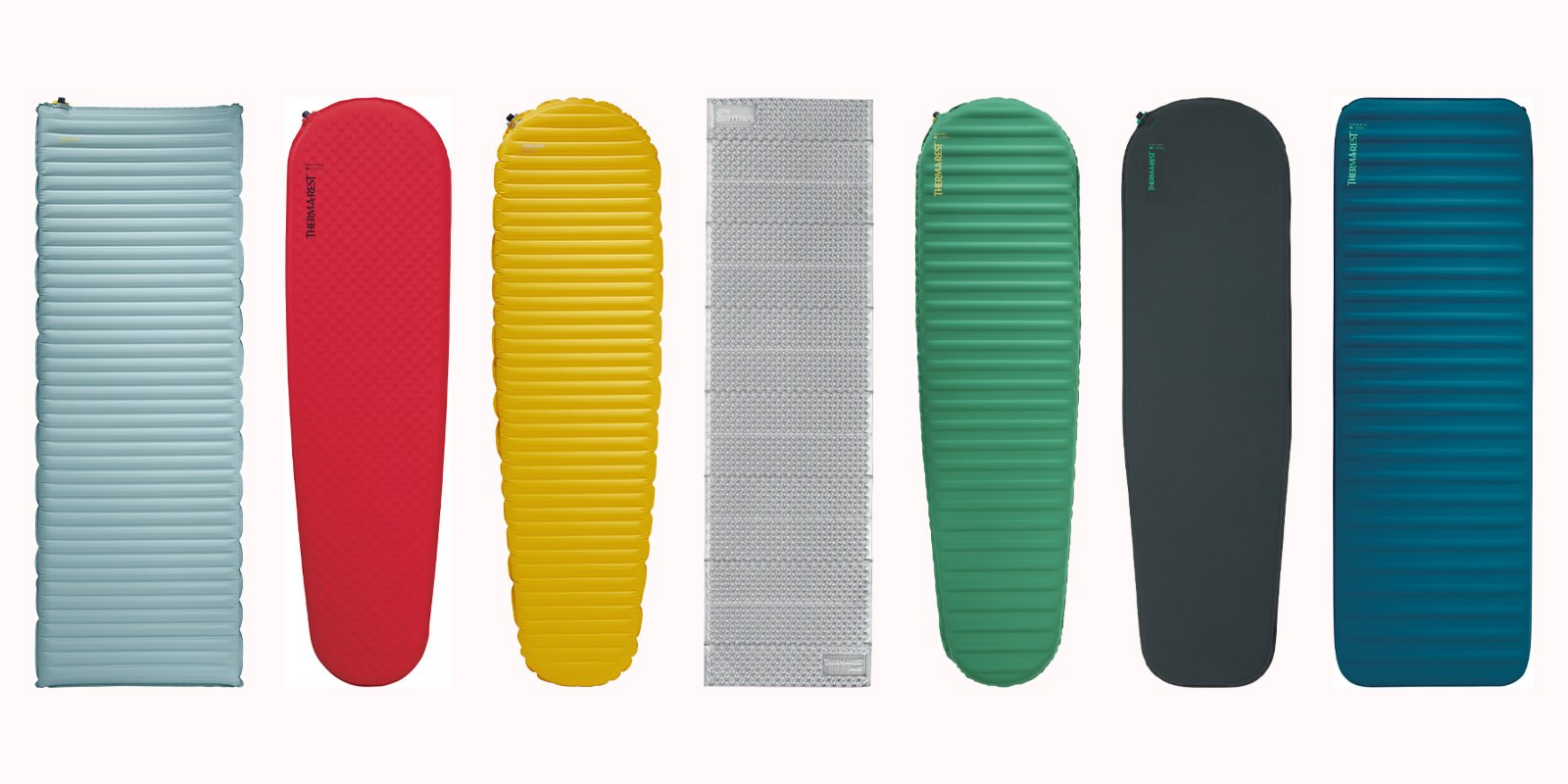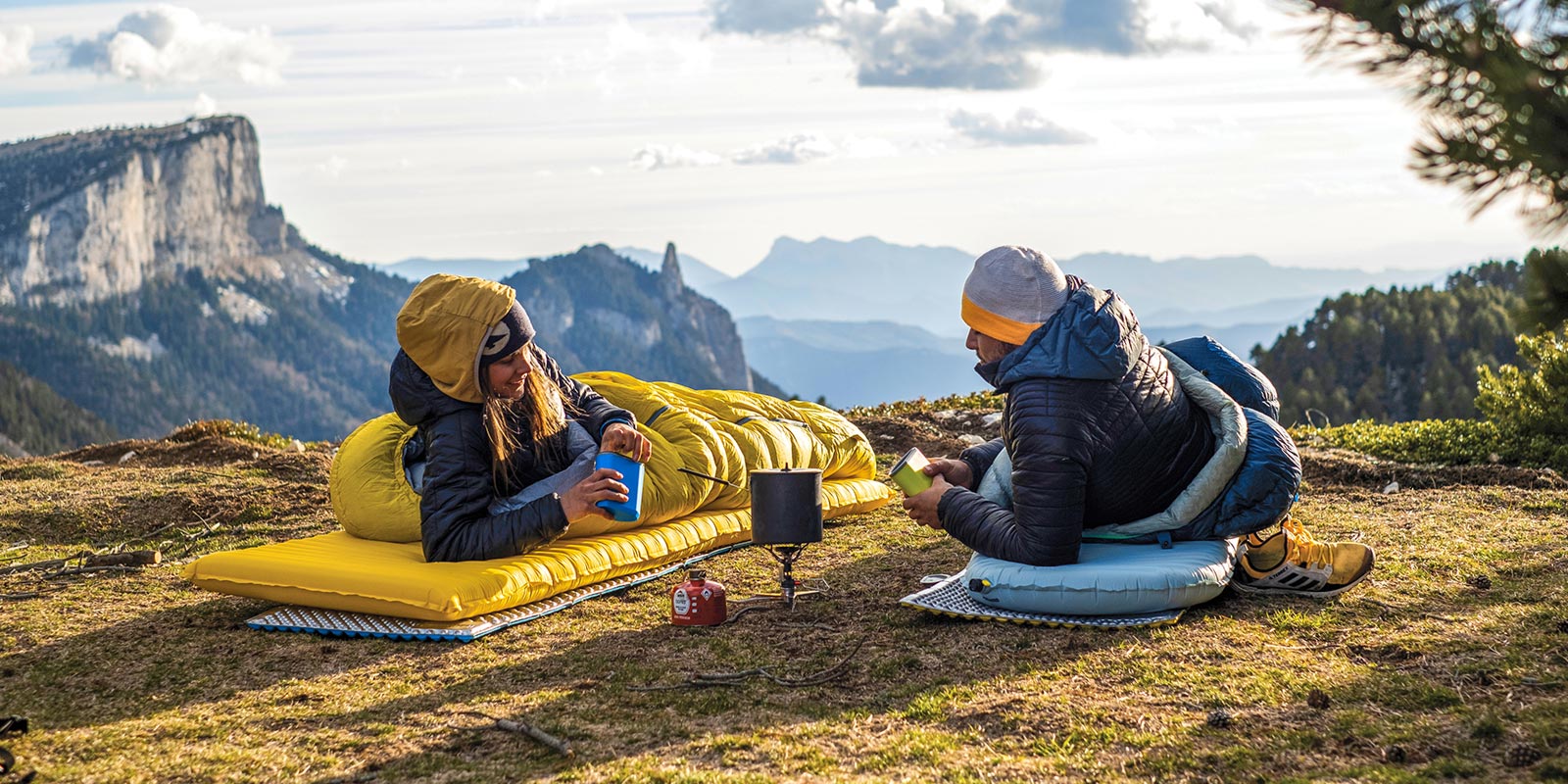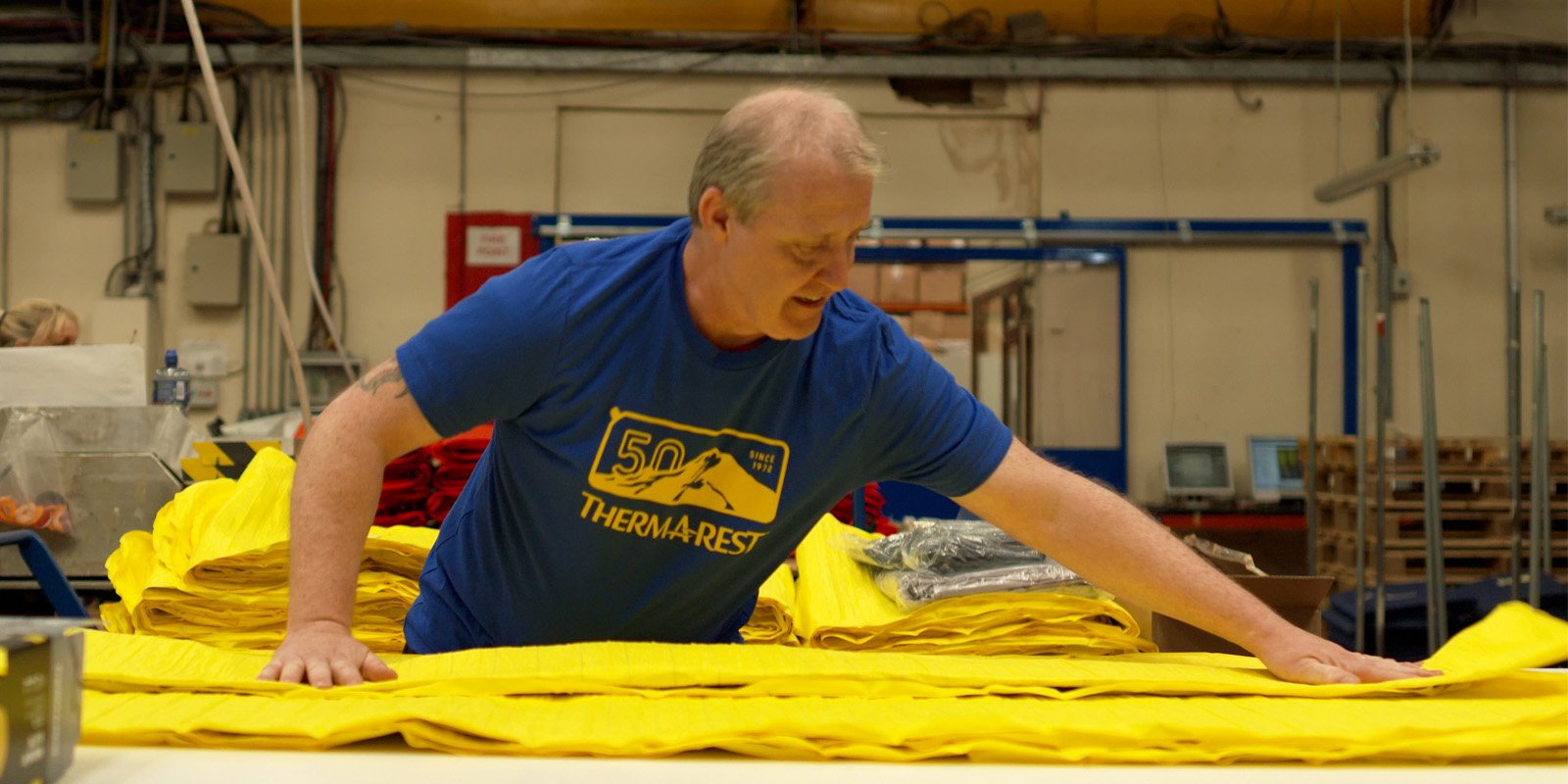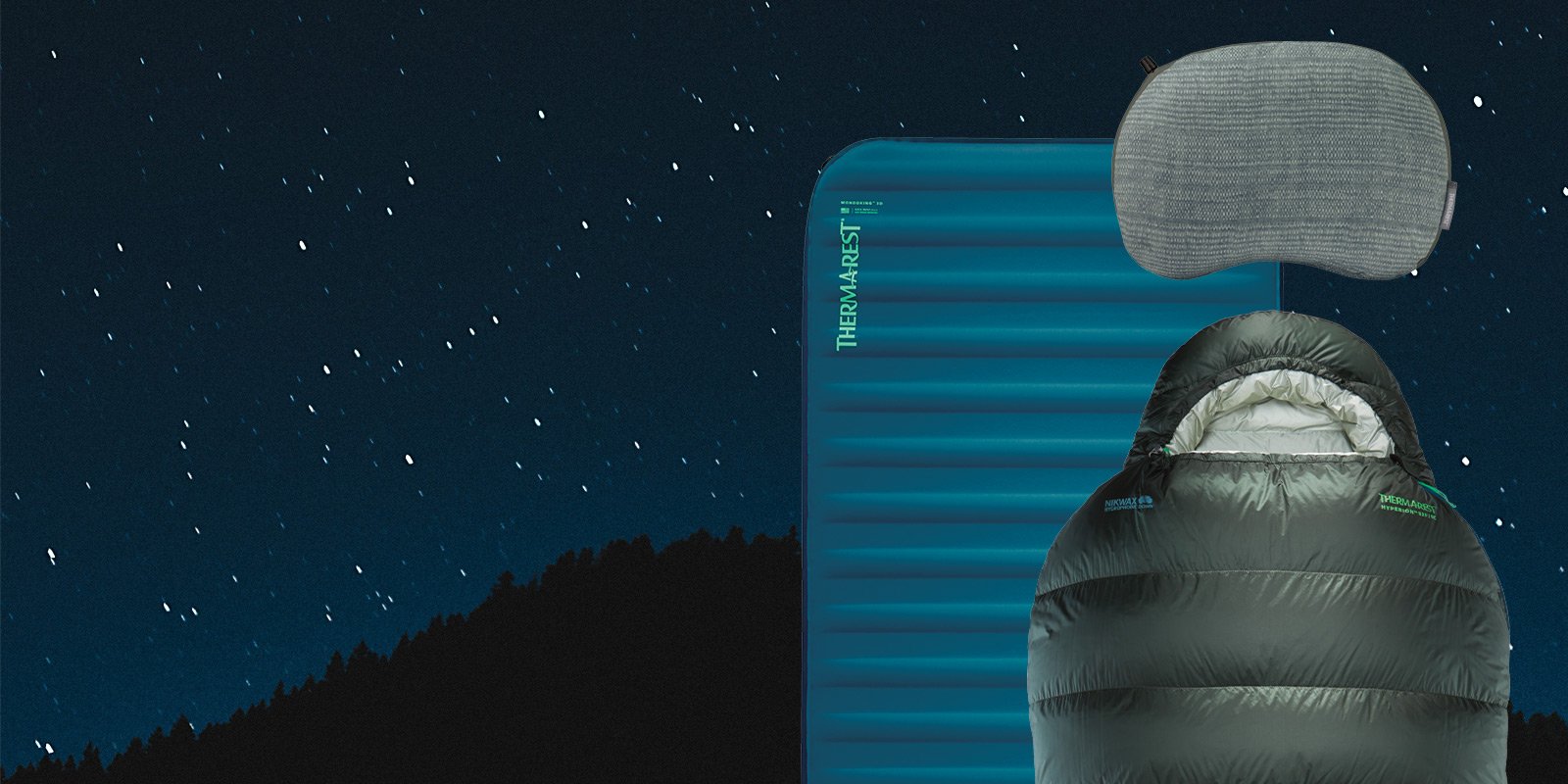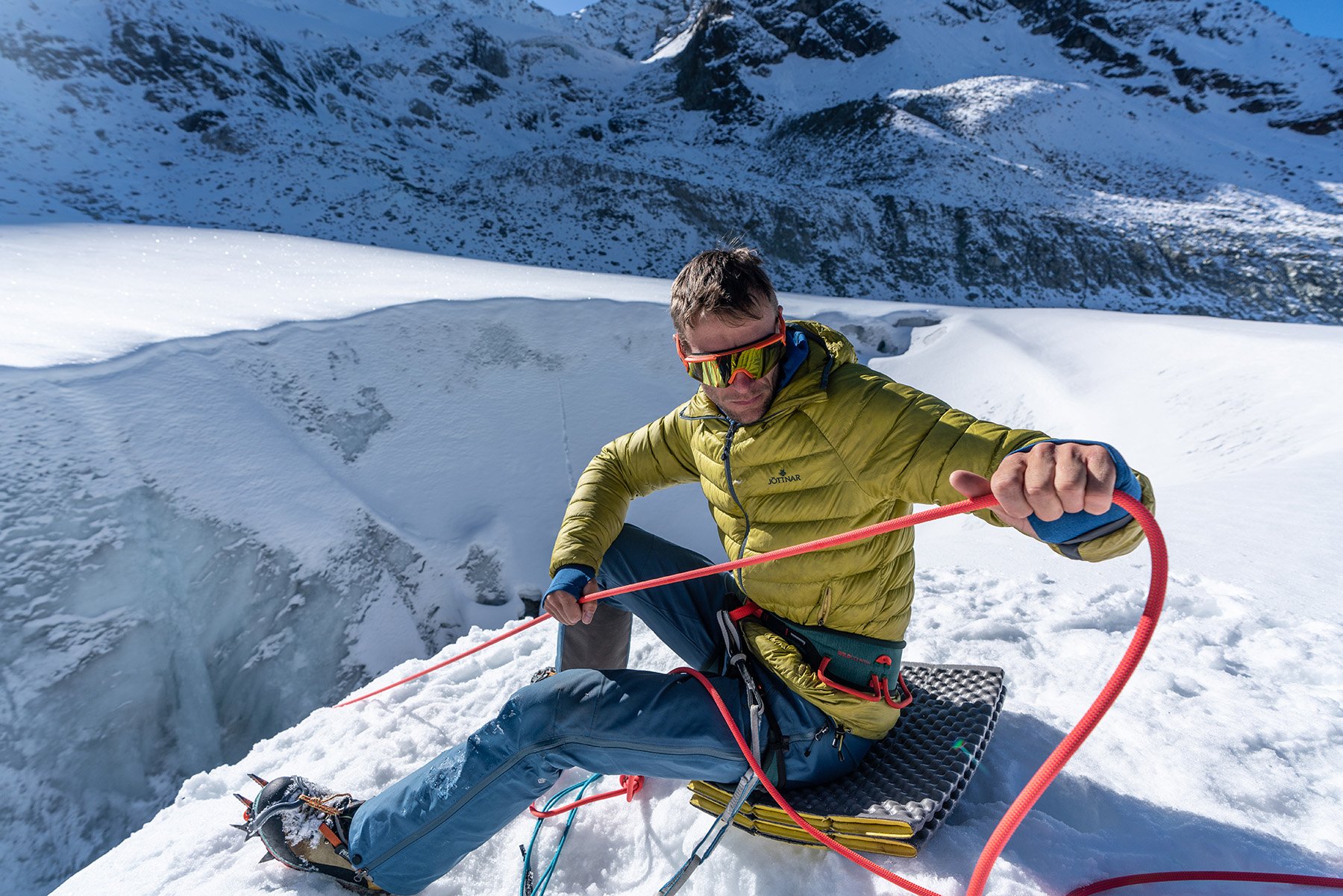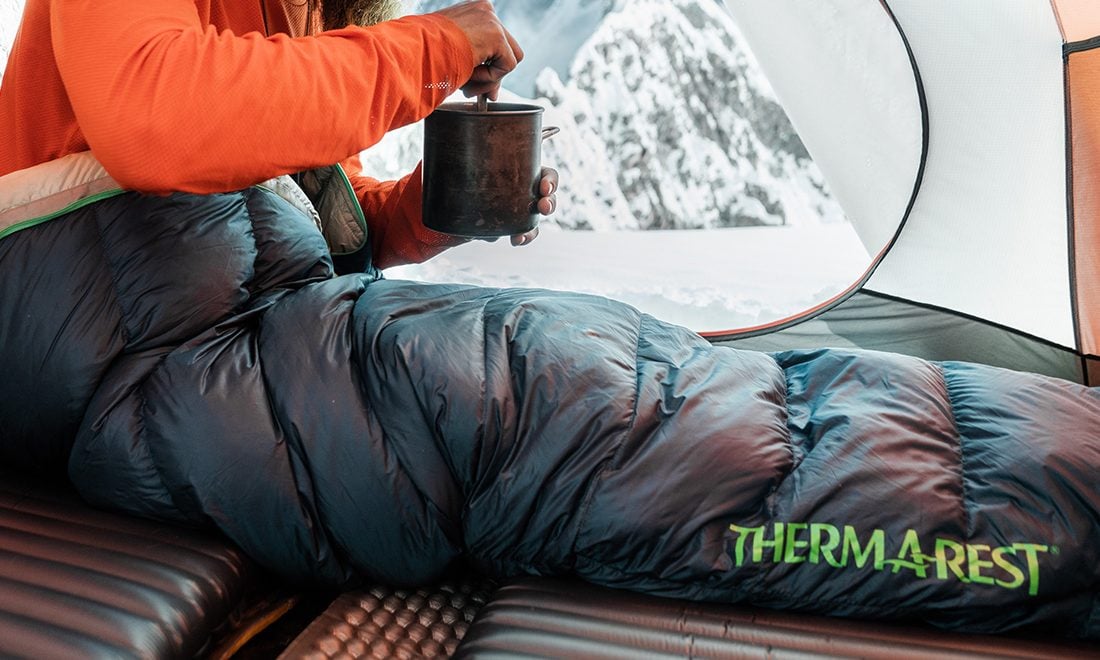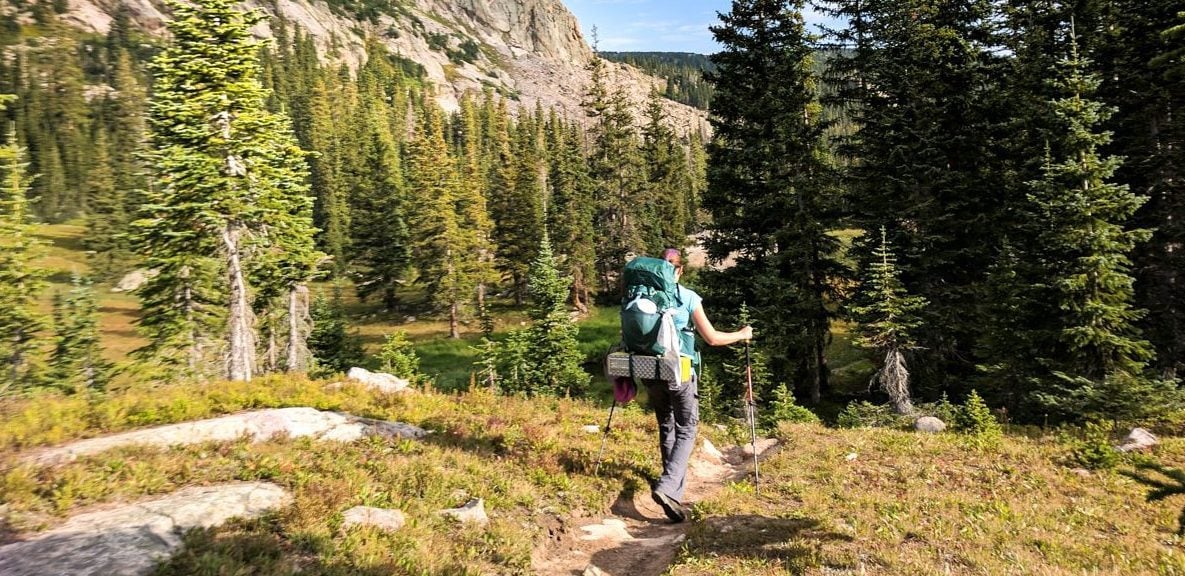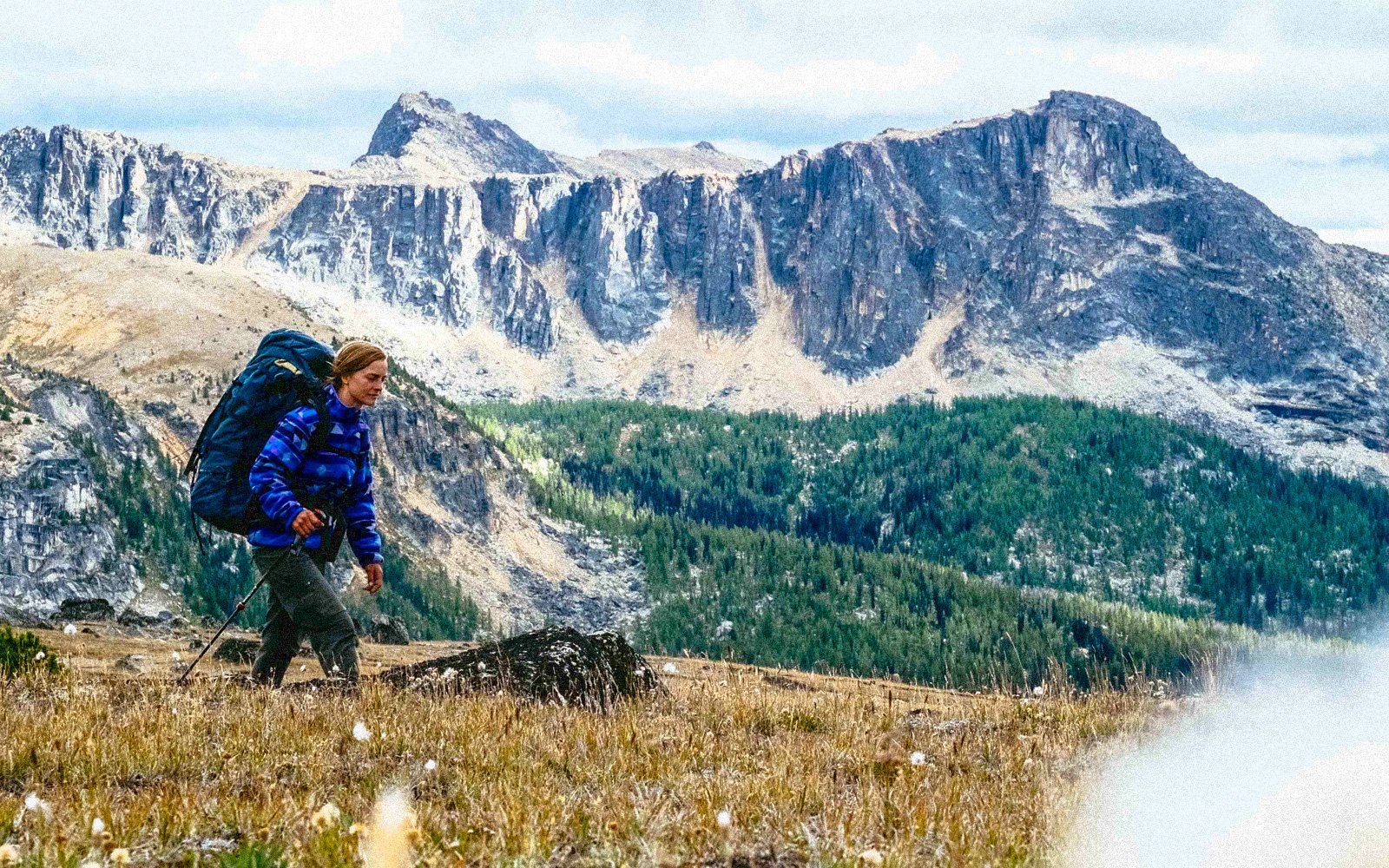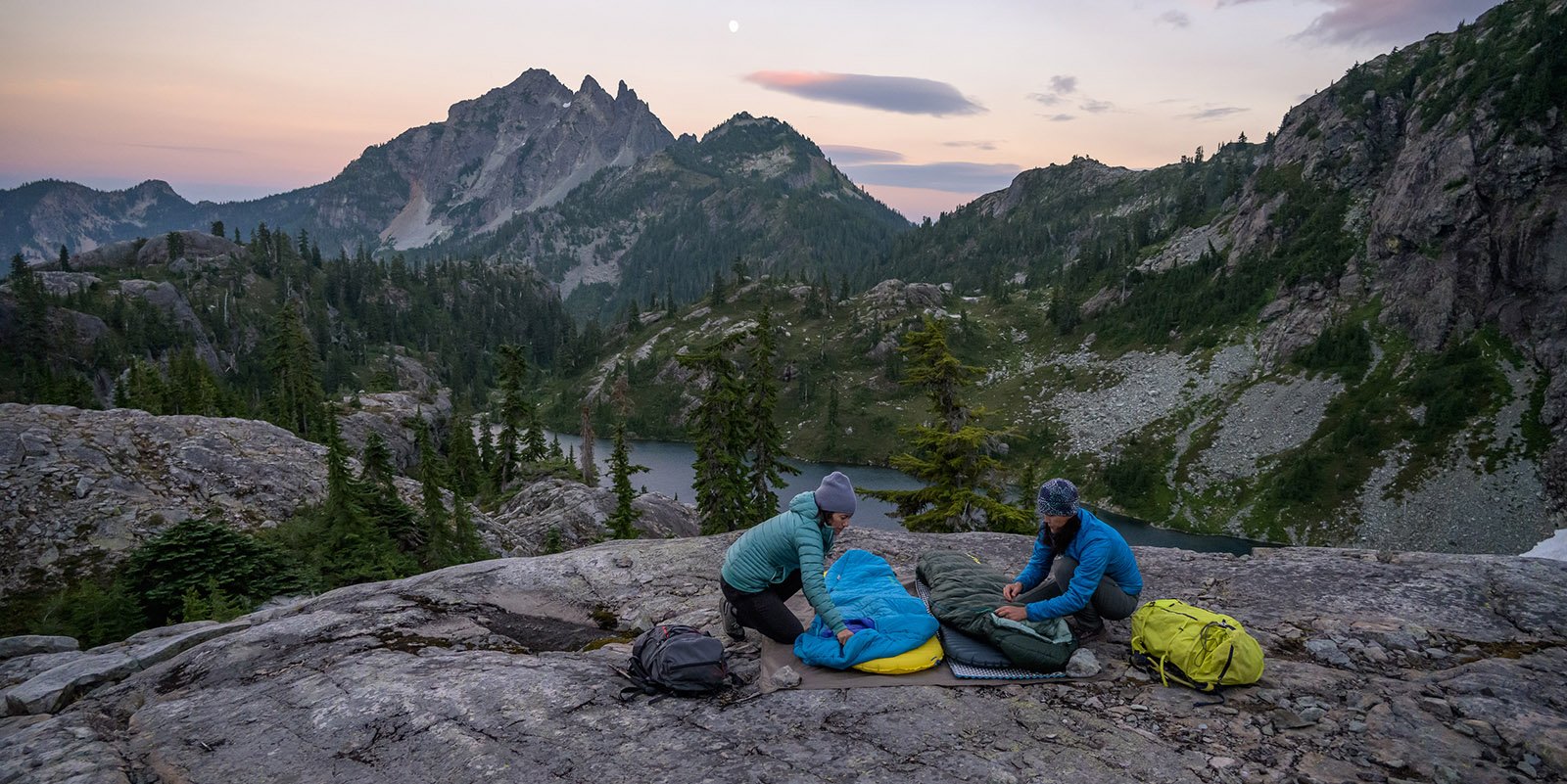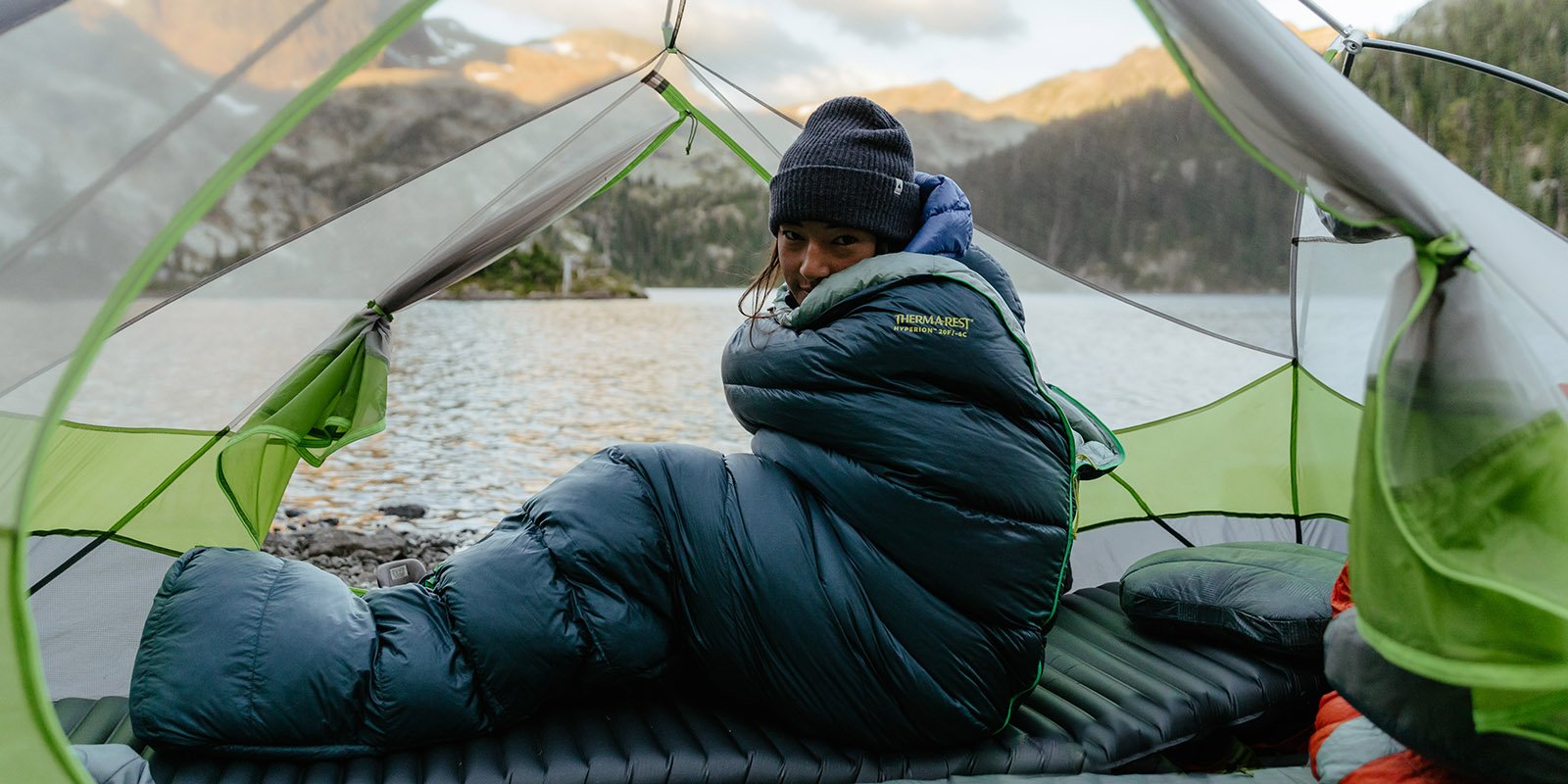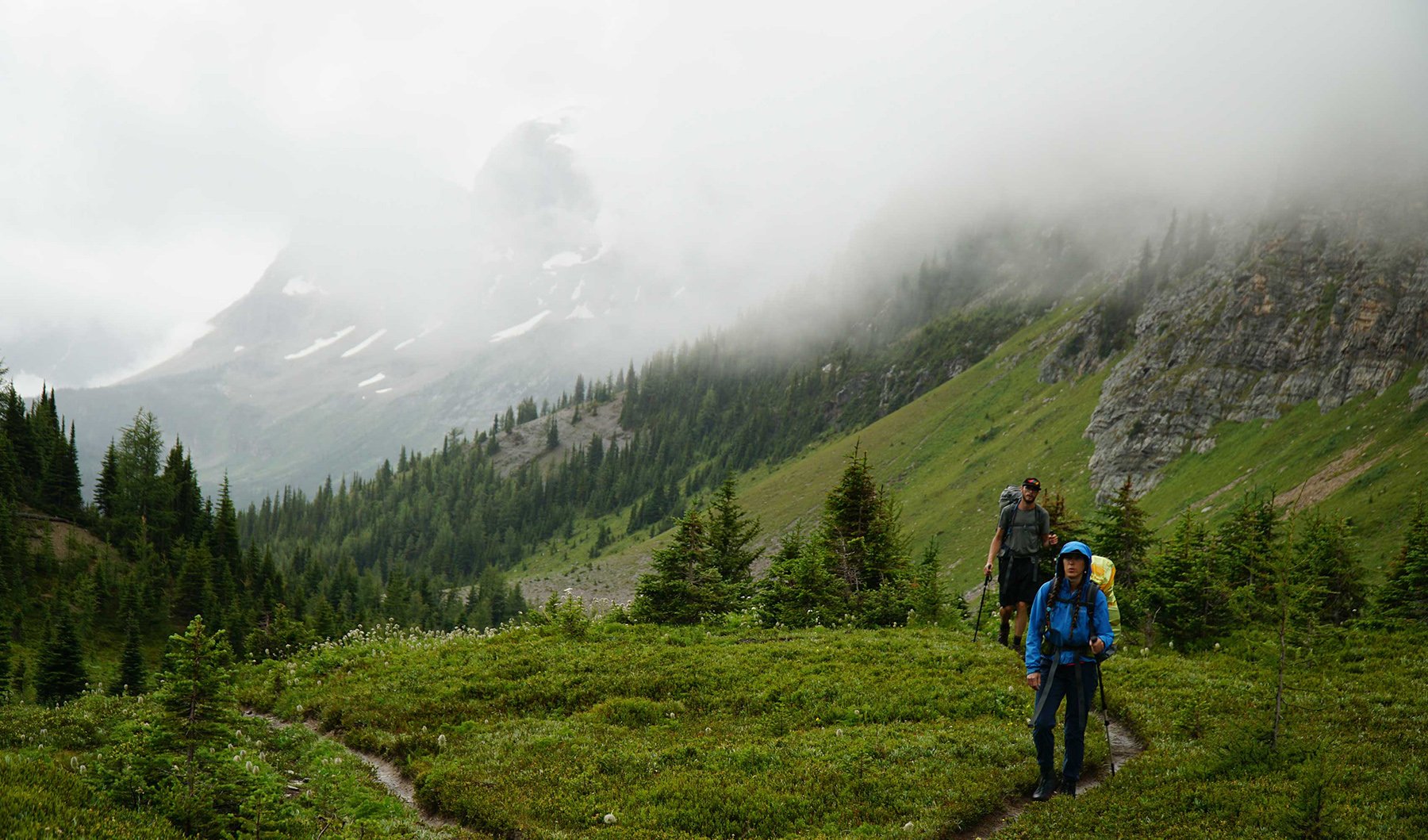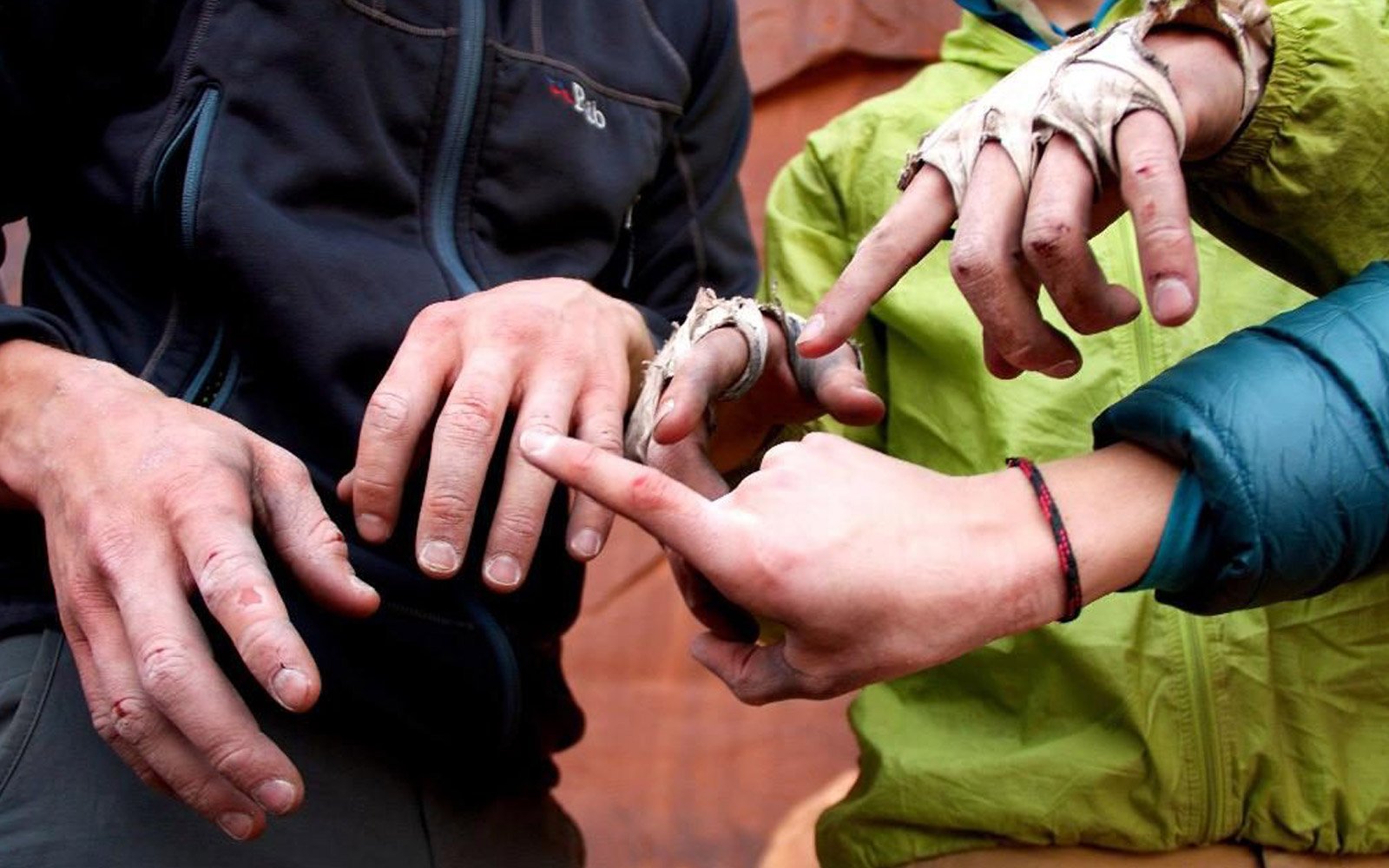We’ve been the leader in camp since 1972 and have built and sold a lot of gear. That also means we’ve answered a lot of questions over those years to help people get the most out of their gear and enjoy better nights under the stars. However, some of the answers to those questions haven’t been answered for the whole community of campers and adventurers. For example, what side of our legendary Z Lite sleeping pad should be facing up?
So, we’ve assembled a few of our most frequently asked questions into one convenient spot to help you enjoy your Therm-a-Rest gear. If you don’t see your question here, ask it in the comments below.
Which side is up on my Z Lite?
Answer: It depends.
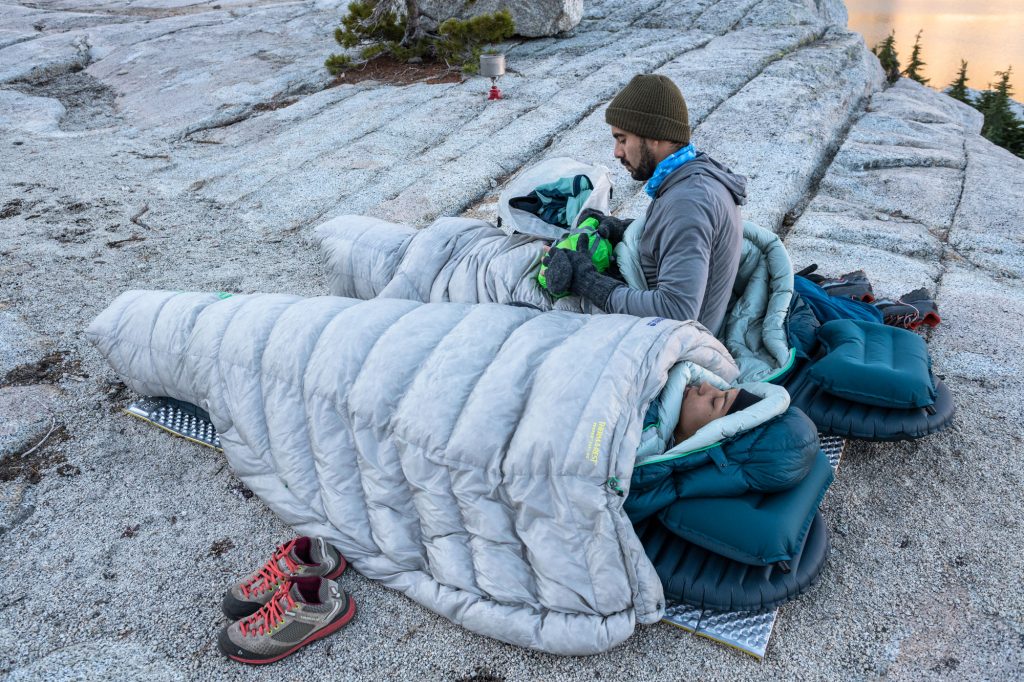
As the original accordion-style sleeping pad, our Z Lite has been a favorite for backpackers for years. It uses a more durable premium foam with more warmth and at a lighter weight.
The pad uses dual-density foams: a durable yellow/blue and a softer silver. We designed it this way to maximize comfort, durability, and warmth. The yellow/blue side uses this tougher foam, enduring the rigors of the backcountry while providing a barrier between you and the cold ground. The softer silver side is more comfortable and supportive. This side is silver because it uses our ThermaCapture finish, reflecting radiant body heat back to you. So, if you want to sleep warmer, turn the silver side up. If you’re looking cool down, silver side down.
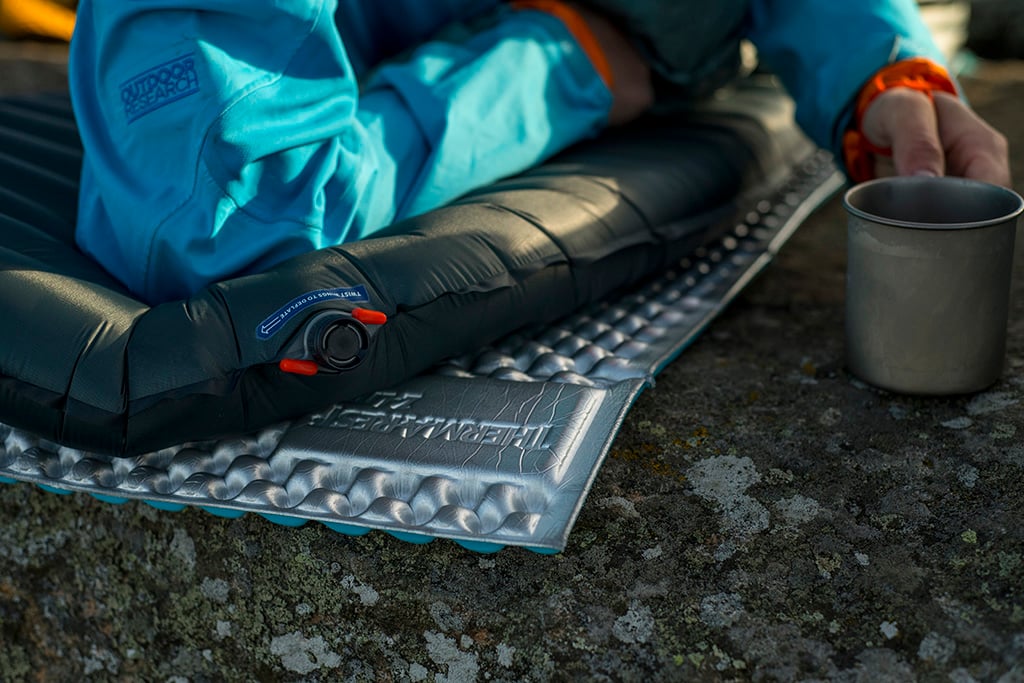
Therm-a-Rest’s Z Lite Sol™ sleeping pad comes in three colors: yellow, blue, and brown.
What’s the weight limit of a Therm-a-Rest pad?
Answer: Over 1440 pounds static.
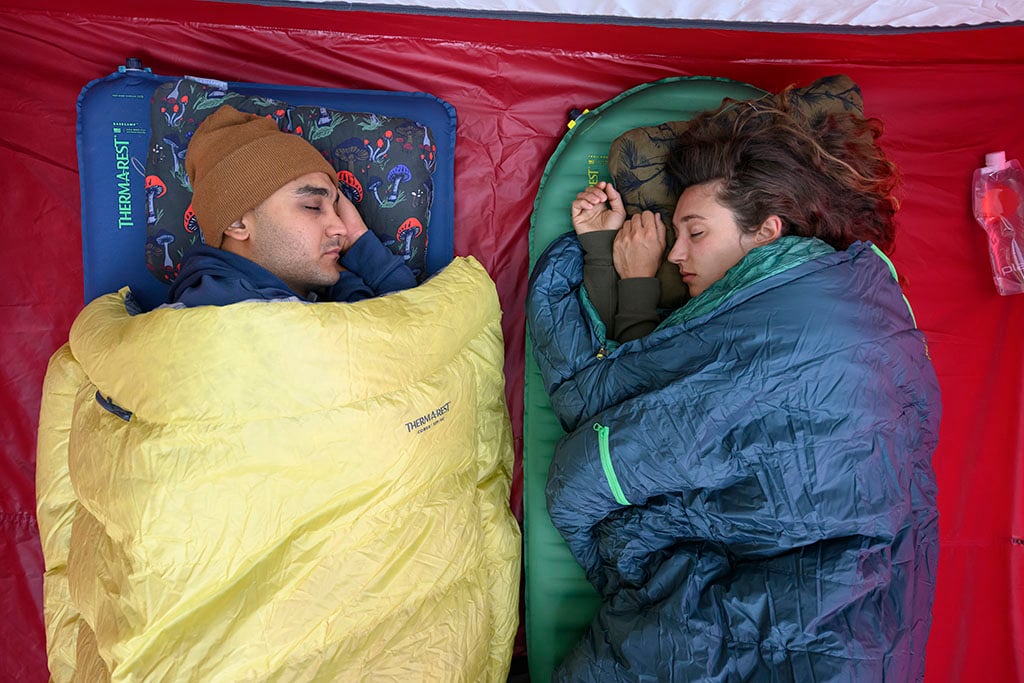
This one is a little tricky, but so long as you are just laying on the pad, it can handle your weight. However, jumping on your pad or putting your full body weight suddenly through your elbow can be a bit of a different story. The same thing can happen if the pad is sitting on top of a pointy rock or tree stump.
In general though, know that your Therm-a-Rest pad can handle your weight for a restful night under the stars. But it’s definitely not a trampoline.
Why is my Compressible pillow lumpy? Is there anything I can do?
Answer: Tumble dry on low to restore the foam.
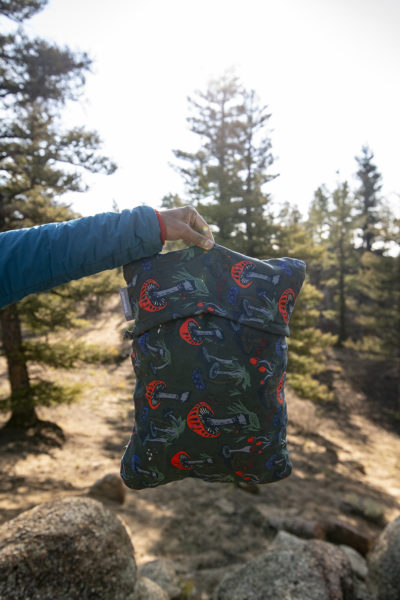
Our Compressible Pillow is built using the foam “punch outs” from our self-inflating sleeping pads. This open-cell foam compresses when compressed and will expand after it is opened. This is why our self-inflating pads feature valves and why we recommend storing them open.
Our Compressible Pillows are generally stored packed and don’t feature valves, so the foam can become very compressed over time. When this happens, a little heat and tumbling from your dryer can help it reach its full comfort potential.
Why is my sleeping bag thicker on top and thinner on bottom?
Answer: To place warmth where you need it and save weight.
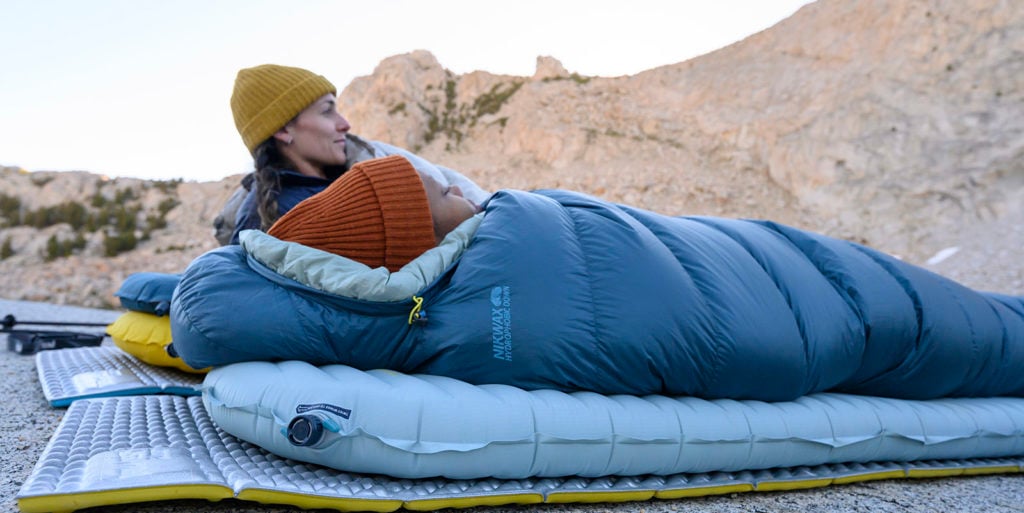
Our Zoned Insulation technology is a key feature on all of our sleeping bags. When you compress the down or synthetic fill of your sleeping bag by laying on it, it loses a lot of its warmth. This makes the insulation and R-value of your sleeping pad essential to staying warm.
By putting less fill on the bottom and more on the sides and top of the bag, we’re cutting out low-performance down on the bottom of the bag and allowing your pad to do its job. The result is a warm bag for camp that’s also lighter in your pack.
For an in-depth look at how our Zoned Insulation works, check out accordion-style sleeping pad.
Is it safe for me to inflate my sleeping pad with my breath?
Answer: It is perfectly safe for you and your pad.
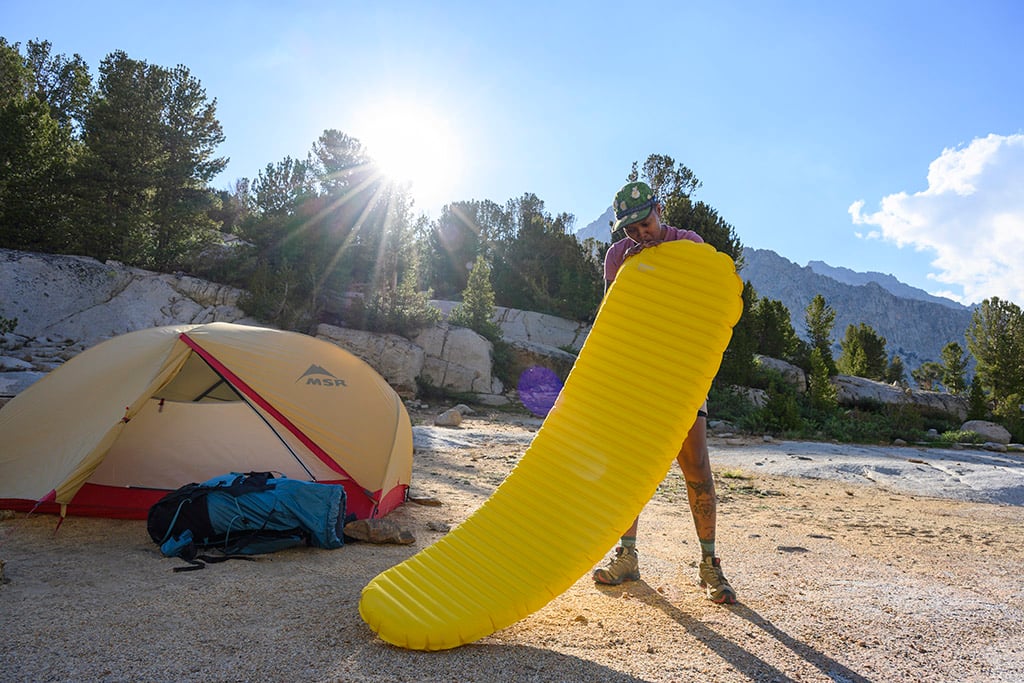
We’ve spent a lot of time studying the effects of breath inflation over time and have determined that breath inflating your pad is perfectly safe for you and your pad.
My trusty sleeping bag isn’t as warm as it used to be. Is there anything I can do?
Answer: Try washing it.
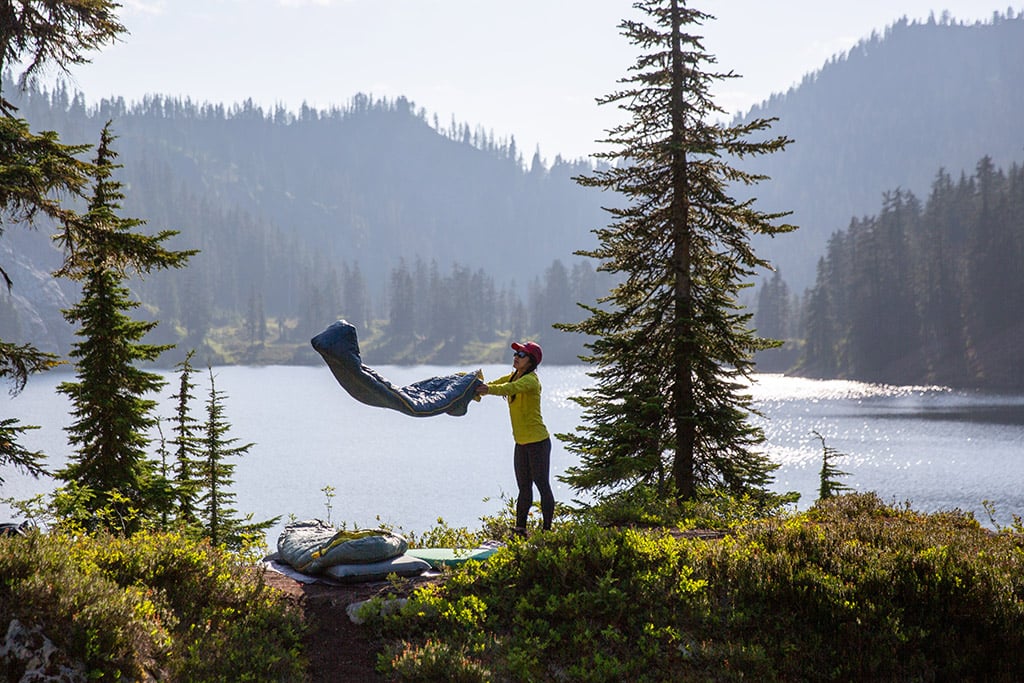
Washing your sleeping bag revitalizes sad, clumped-up fill by washing away accumulated dirt, body grime, sunscreen and all manner of things that can weigh down your insulation and reduce its loft. A good washing gives you a clean happy sleeping bag and restores loft. Be careful not to over do it though. Washing a bag too often can actually do more harm than good. How often you wash your sleeping bag depends on how often you use it, but once every year or two is typically plenty for the average user.
Related Posts:
- Backpacking Gear Care for Sleeping Pads & Bags
- How to Choose Right Size & Shape Sleeping Pad
- 3-Season Sleeping Bags vs. Winter Sleeping Bags
Updated. Originally Published September 4, 2019.
